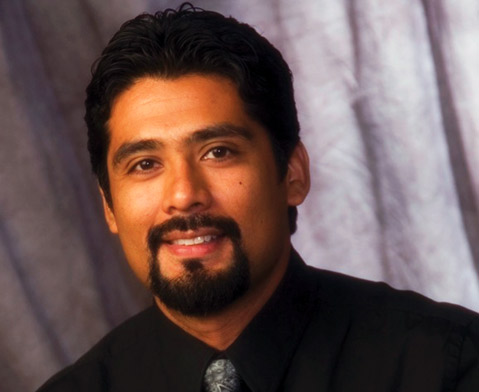Justice System vs. Urban Youth
UCSB Gang Expert Victor Rios Gives Talk About Causes of Juvenile Deliquency

On a Tuesday evening earlier this month, sociologist Victor Rios shared the results of his research about the relationship between the justice system and urban youth in front of a completely packed house at the UCSB MultiCultural Center Theater. His research, conducted both in Oakland (where he’s from) and in Santa Barbara (where he’s been a UCSB professor since 2006), all seemed to suggest that the justice system, as it currently stands, is training urban youth to have a destructive relationship with authority. But this problem isn’t one where causation is easy to identify and fix.
Early in the presentation, Rios shared stills from a video in which a young man in a school hallway is confronted by a group of rival gang members, restrained dramatically, and taken to the ground. That was far from the first incident of this nature that the student had been involved in, and he was eventually expelled from the school for his repeated association with gangs and “gang culture.”
“That student was me,” Rios revealed shortly thereafter. The footage was from a PBS documentary called School Colors, in which filmmakers followed Rios and other “urban youths” in order to document their gang-related trials and tribulations. Rios eventually overcame these trials, something that he says the PBS cameras bore witness to. “But they didn’t show that,” he remarks. The system, it seems to Rios, isn’t as interested in stories of reformation as they are stories of violence.
Rios went on to share the details of what he calls the “systematic stripping of dignity” that youths, specifically African Americans and Latinos, endure on multiple fronts. The projection of stereotypes in the media and the reinforcement of those stereotypes in the news put the youth at dramatic disadvantages. More significant to Rios, though, is law enforcement’s treatment of the youth. From a very young age, the police seem inclined to establish themselves as adversaries. They stop, handcuff, and frisk kids, intimidating them and threatening them with physical violence. Rios’s only admission that the system may have some advantages is that it’s motivated so many to educate themselves with hopes of fixing it, a group that seemingly includes himself.
Rios’s testimony on the police in urban areas is tough to argue with. When it comes to matters of law enforcement, Rios’s voice alternated between a person who’s experienced these things firsthand and a researcher who’s seen these scenes play out many times. He served up a mix of anecdotes from his past and from his time doing research. He told stories about a police officer bashing in the head of his cousin with a baton, a cadre of “rogue” cops nicknaming themselves “The Riders” in the Bay Area, and a particular officer who used to give Rios and his friends a head start before he’d chase them down and give them a “beat down.” That particular officer earned the nickname “Track Star.” The nicknames and stories that the youth shared about the police were particularly telling of their relationship to authority, or “the system.” Moments after this, some of the young people in the audience from Santa Barbara could be heard talking about “the black car.”
The audience in the theater was composed of a mix between UCSB students, faculty, and young people that one could reasonably conclude were the “youths” that Rios is speaking about. During the question-and-answer portion of the presentation, one young man with a tattoo below his left eye asked why the police aren’t considered a gang. Rios jumped backward in his slideshow to a picture of police officers at the S.B. County Fair, where he’d seen the cops single out a 12-year-old boy, put him in cuffs, and then make him remove his shirt so they could search for tattoos. “A gang,” Rios answered, “is defined as a group that share a common appearance … who band together for shared protection and profit.” Rios’s response was pretty clear. The whole crowd cheered and laughed.
Where things get complicated is Rios’s cut-and-dry identification of who’s responsible for the “school-to-prison” pipeline. He did not address — at least in his presentation — a lot of other factors that may be as relevant as the posture of law enforcement, such as problems stemming from drug abuse, unemployment, domestic issues, and the upside-down education system. But over the last few years, Rios’s work has garnered a lot of attention and a lot of praise for good reason: He’s boldly gone where most researchers or academics either have not or will not go. And clearly, it’s not something he takes lightly. His passion seems to come from a lifelong picture of these issues and struggles, and that passion is contagious.



